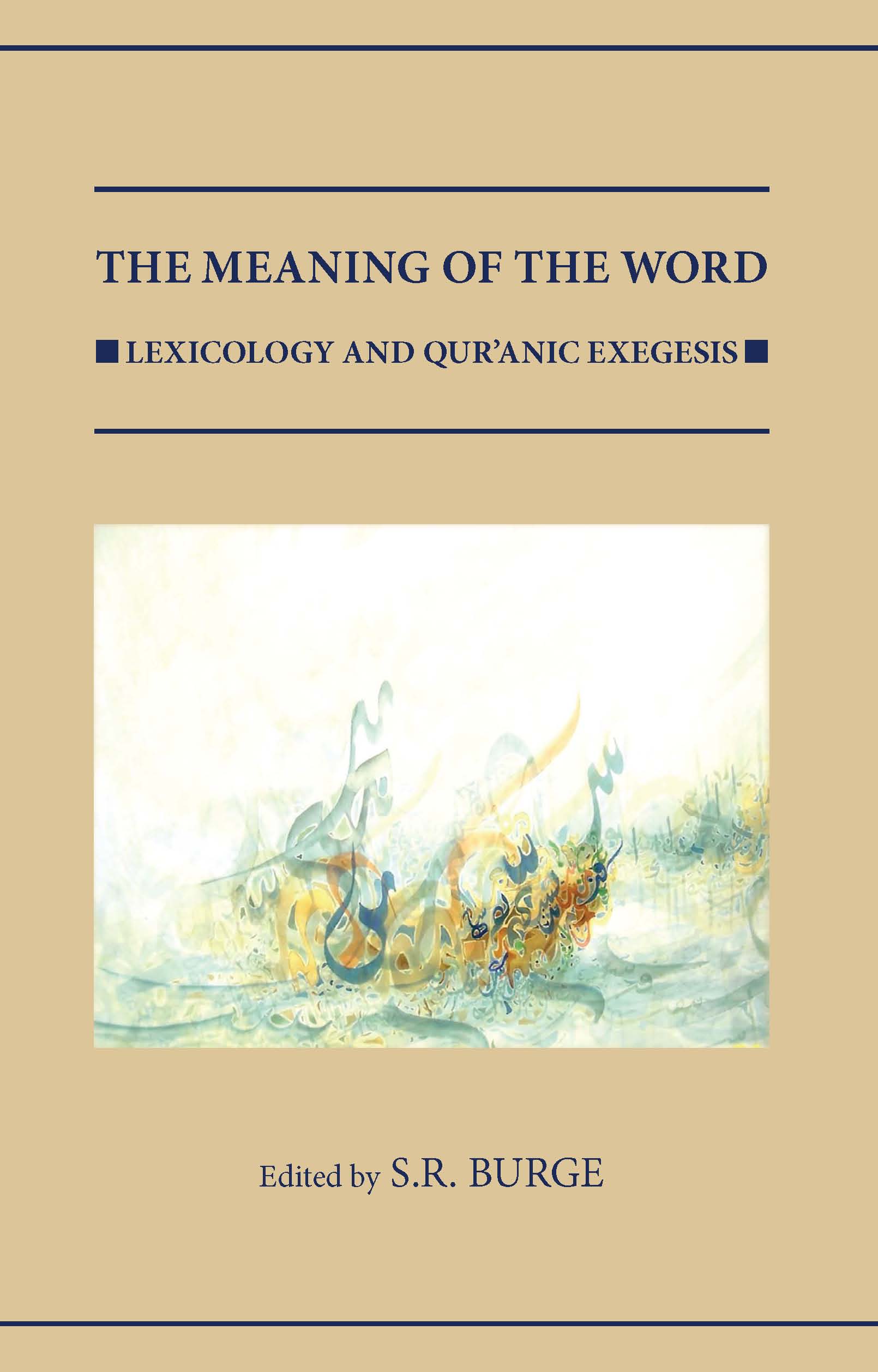The basic intention of Qur’anic exegesis (tafsīr) is to understand what the text of the Qur’an means. Before attempting to understand anything of the Qur’anic worldview, its theology and ethical values, there is a need for exegetes to engage with the individual words found in the Qur’anMuslims believe that the Holy Qur’an contains divine revelations to the Prophet Muhammed received in Mecca and Medina over a period of 23 years in the early 7th century CE. More itself. Yet, exegetes and translators, whether medieval or modern, have different theological perspectives, which influence how they do this. Many modern scholars have recognised that lexicology plays an important part in exegesis, but there are few studies of how exegetes use it to develop their interpretations of the Qur’an or that address lexicology in Qur’anic exegesis in any depth. This volume of essays addresses this gap in the scholarship.
The Meaning of the Word provides an overview of the development of lexicological analysis in the tafsīr tradition, and examines how exegetes interpreted words in the Qur’an. The contributions reflect on lexicology in Qur’anic exegesis through studies of a wide range of subjects, from linguistics to literary criticism, and law and gender to mysticism; from examinations of the issue of lexicology in the Arab, Persian and Turkish worlds to its examination in the European world; and from studies of the earliest discussions of Qur’anic lexica to those made in twentieth-century Turkey and recent English translations of the Qur’an. This volume will become a subject-specific reference volume for anyone working on the interpretation of the Qur’an, but also in Islamic Studies and the wider field of Religious Studies.
Notes on Contributors
Note on Transliteration, Conventions and Abbreviations
Preface
1. Introduction: Words, Hermeneutics, and the Construction of Meaning, S.R. Burge
Section I: Lexicology and the Formative Period of Qur’anic Exegesis
2. In Search of Meaning: Lexical Explanation in Early Qur’anic Commentaries, Kees Versteegh
3. Lexicological Hadith and the ‘School’ of Ibn ʿAbbās, Herbert Berg
4. The Interpretation of Three Qur’anic Terms (Siyāḥa, Ḥikma and Ṣiddīq) of Special Interest to the Early Renunciants, Christopher Melchert
Section II: Lexical Methodologies in Action: Four Case Studies
5. The Use of Lexicography in the Great Qur’anic Commentary of al-Wāḥidī (d. 468/1076), Claude Gilliot
6. Authority and the Defence of Readings in Medieval Qur’anic Exegesis: Lexicology and the Case of Falaq (Q. 113:1), S.R. Burge
7. Poetic Licence and the Qur’anic Names of Hell: The Treatment of Cognate Substitution in al-Rāghib al-Iṣfahānī’s Qur’anic Lexicon, Devin Stewart
8. Paradoxes in Shahrastānī’s Lexicological Methodology, Toby Mayer
Section III: Words, Interpretation and Legal Disputes
9. From Qur’an to Fiqh: Sunni and Shi‘i Tafsīr on the Inheritance Verses and the ‘Named Cases’ (al-Masāʾil al-Mulaqqaba), Agostino Cilardo
10. Marital Discord in Qur’anic Exegesis: A Lexical Analysis of Husbandly and Wifely Nushūz in Q. 4:34 and Q. 4:128, Ayesha S. Chaudhry
11. The Optional Ramadan Fast: Debating Q. 2:184 in the Early Turkish Republic, M. Brett Wilson
Section IV: The Word in Translation: Medieval and Modern Disputes
12. The Fātiḥa of Salmān al-Fārisī and the Modern Controversy over Translating the Qur’an, Travis Zadeh
13. The Qur’an Today: Translating the Translatable, Stefan Wild
Bibliography
Index of Qur’anic Citations
Index of Qur’anic Words and Phrases
General Index
‘In this volume, a fascinating array of subject areas, including theology, mysticism, the linguistic sciences, literary criticism, law and translation, provides the thematic backdrop against which key aspects of classical exegetical discourses are gauged and contextualized.’
– Mustafa Shah, Senior Lecturer in Islamic Studies, School of Oriental and African Studies, University of London
‘This volume of essays, dealing with how Muslims have grappled with issues of meaning in the Qur’an through lexicography and translation through the centuries, brings together some excellent research and penetrating analysis. It provides a valuable contribution to the discipline.’
– Andrew Rippin, Professor Emeritus, University of Victoria, Canada
Stephen R. Burge is a Research Associate at The Institute of Ismaili Studies, London. He completed his PhD at the University of Edinburgh in 2009, and has since published this as Angels in Islam: Jalāl al-Dīn al-Suyūṭī’s al-Ḥabāʾik fī akhbār al-malāʾik (London, 2012). More recently, he has focused his attention on Qur’anic exegesis, particularly Suyuṭi’s main exegetical work, al-Durr al-manthur fi’l tafsīr bi’l-maʾthur. He is also working on an edition of the Anthology of Qur’anic Commentaries on the ‘Pillars of Islam’.

